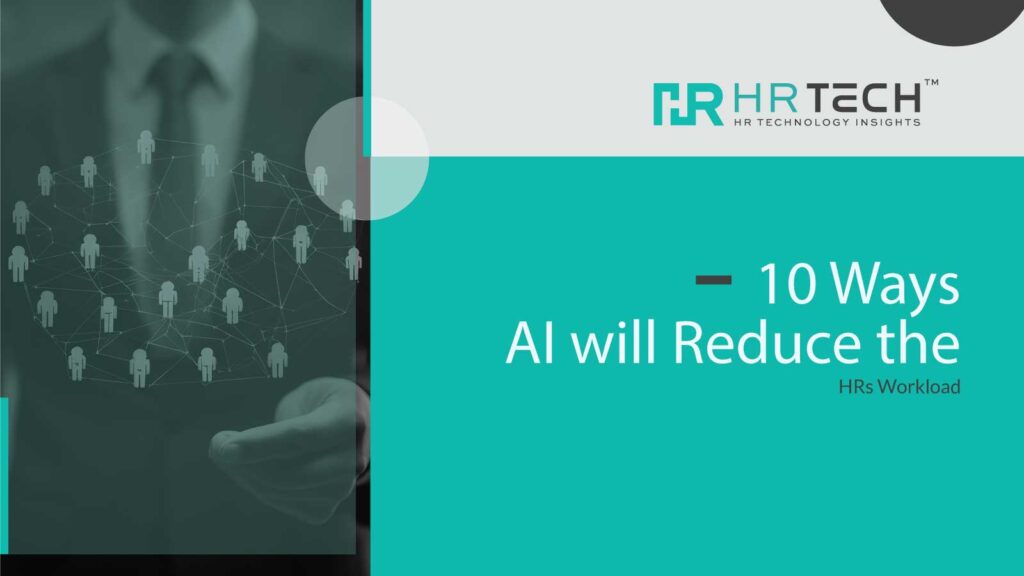Artificial Intelligence (AI) rapidly transforms various industries, and the Human Resources (HR) department is no exception. According to a recent report, there is a significant uptick in the number of HR leaders implementing Generative AI tools for different employee-facing activities. By automating repetitive tasks, providing data-driven insights, and enhancing employee engagement, AI is poised to reduce HR’s workload significantly. This introduction will explore some key ways AI is revolutionizing the HR landscape. Artificial Intelligence (AI) rapidly transforms various industries, and the Human Resources (HR) department is no exception. By automating repetitive tasks, providing data-driven insights, and enhancing employee engagement, AI is poised to reduce HR’s workload significantly. This introduction will explore some key ways AI is revolutionizing the HR landscape.
One of the most significant ways AI can reduce HR’s workload is by automating routine tasks.
For instance, AI-powered chatbots can handle common employee inquiries, freeing up HR professionals to focus on more strategic initiatives. Additionally, AI algorithms can streamline the recruitment process by automating tasks such as resume screening and scheduling interviews. This not only saves time but also improves efficiency and accuracy.
How is AI reducing HR workload?
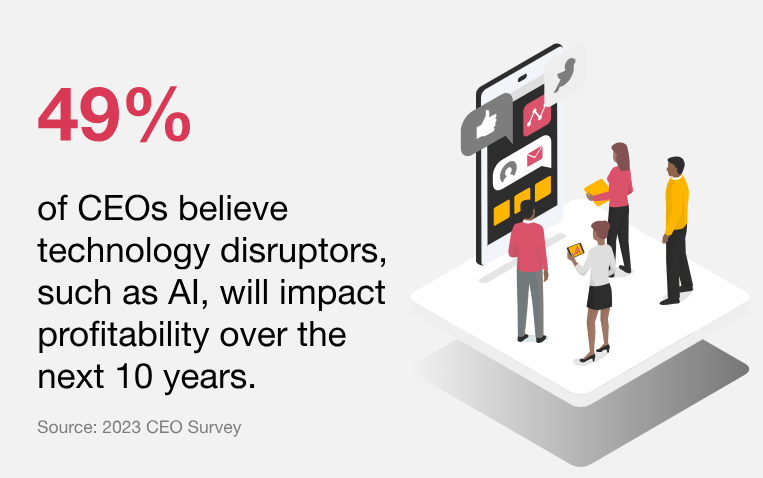
AI is significantly changing how companies and teams work, introducing a new era of efficiency and innovation. Before AI, businesses relied entirely on manual methods for tasks like data analysis, decision-making, and customer service, which were time-consuming and required a lot of effort. Now, AI is transforming the workplace by automating these processes, allowing for faster, more accurate data analysis, improved customer service, and easier collaboration for teams that work together in person, remotely, or a combination of both. Consider how AI in the workplace is affecting business productivity now and in the future:
AI is rapidly becoming a vital part of the business landscape. Its benefits are far-reaching and significant, whether it’s boosting productivity, streamlining operations, improving customer engagement, or enhancing employee experiences. Here are 10 key advantages of AI in the workplace:
#1 Increased Productivity
AI productivity tools like Microsoft 365 Copilot can streamline routine tasks, freeing up employees to concentrate on more strategic endeavors. This can lead to increased output, improved job satisfaction, and a more engaged workforce. Additionally, AI can reduce the time spent on mundane tasks, allowing employees to focus on higher-value activities that contribute directly to the company’s goals.
Visit HR Tech Blog: Top 10 HR Leaders to Follow on LinkedIn
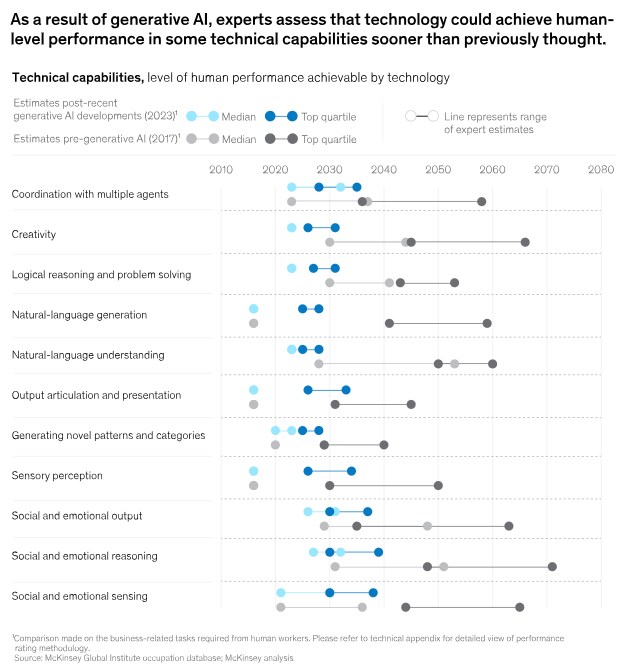
#2 Efficient Operations
AI can predict equipment failures by analyzing historical data and identifying patterns that indicate potential problems. This proactive approach can prevent costly downtime and improve overall equipment reliability. Furthermore, AI can optimize supply chain operations by forecasting demand, managing inventory levels, and improving transportation routes. By minimizing disruptions and reducing waste, AI can enhance supply chain efficiency and lower costs.
#3 Better Customer Engagement
AI-powered chatbots can provide 24/7 customer service, improving response times and reducing costs. Chatbots can handle a wide range of customer inquiries, freeing up human agents to focus on more complex issues. This can lead to increased customer satisfaction, as customers can get the help they need quickly and efficiently. Additionally, chatbots can be programmed to provide personalized recommendations and assistance, further enhancing the customer experience.
Improved customer support: AI-powered chatbots can also be used to provide proactive customer support. For example, chatbots can identify potential issues before they escalate into problems, and can provide customers with relevant information and resources. This can help to reduce customer churn and improve customer loyalty.
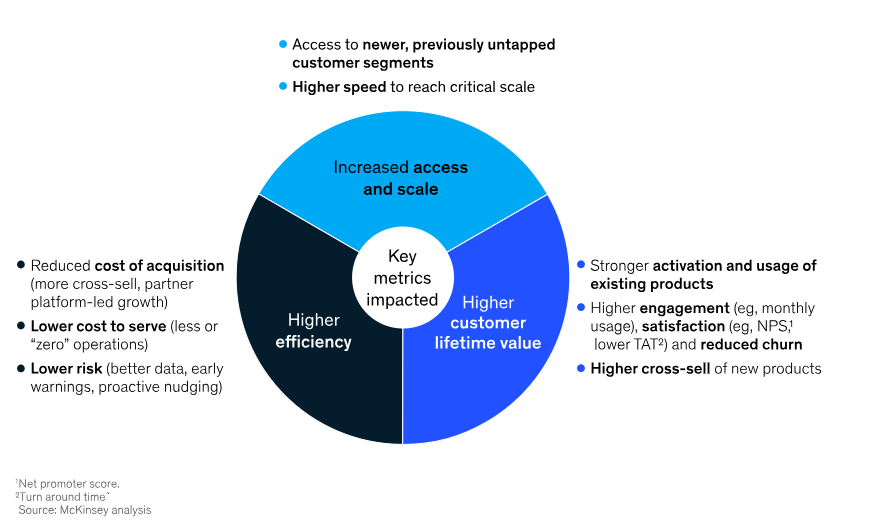
#4 Personalized Experiences
AI can tailor product recommendations and marketing campaigns to individual customers, enhancing loyalty. By analyzing customer data, AI can identify customer preferences, interests, and behaviors. This information can then be used to create highly personalized experiences that resonate with each customer.
For example, AI can recommend products that are relevant to a customer’s recent purchases or browsing history or can send targeted marketing campaigns based on a customer’s demographics or interests. Increased customer satisfaction: Personalized experiences can increase customer satisfaction by making customers feel valued and understood. When customers feel like a company cares about their individual needs, they are more likely to be loyal to that company.
Additionally, personalized experiences can improve conversion rates by making it more likely that customers will purchase products or services that are relevant to them.
Visit HR Tech Blog: Addressing Mental Health in the Workplace with Technology-Based Solutions
#5 Informed Decision-making
AI can analyze vast datasets, offering valuable insights for decision-making in various areas. By identifying patterns, trends, and correlations within data, AI can help businesses make more informed and data-driven decisions. For example, AI can be used to analyze customer data to identify purchasing trends and preferences, enabling businesses to tailor their product offerings and marketing campaigns accordingly. Additionally, AI can be used to analyze financial data to identify potential risks and opportunities, helping businesses make more strategic investment decisions. AI can automate data analysis tasks, saving time and resources. By automating data analysis, businesses can get insights faster and more efficiently, allowing them to make decisions more quickly.
#6 Enhanced Employee Experiences
AI can automate routine tasks, providing employees with more time for meaningful work and fostering a positive work environment. Moreover, AI can personalize employee experiences by tailoring. AI can personalize employee experiences by tailoring tasks and information to individual needs and preferences. By analyzing data on employee behavior, skills, and goals, AI can recommend relevant training, development opportunities, and project assignments. This personalized approach can boost employee engagement, motivation, and overall job satisfaction.
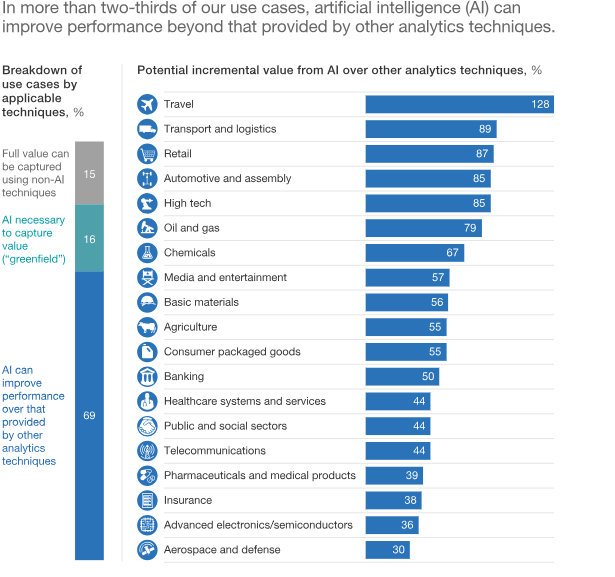
#8 Proactive Risk Management
AI can predict potential risks and identify fraudulent activities, protecting businesses and customers. AI can also enhance proactive risk management by analyzing vast amounts of data to identify patterns and anomalies that may indicate potential threats. For example, AI algorithms can detect fraudulent transactions, cybersecurity breaches, and supply chain disruptions in real time, allowing businesses to take preventive measures and mitigate risks before they escalate.
#8 Improved Hiring Processes
AI can automate candidate screening and assessments, leading to better hiring decisions and employee retention. AI can streamline the hiring process by automating tasks such as candidate screening, resume parsing, and initial assessments.
By analyzing candidate data against job requirements, AI can identify the most qualified individuals and reduce bias in the hiring process. Additionally, AI-powered tools can provide insights into employee retention factors, helping businesses to create a more engaging and satisfying work environment.

#9 Increased Innovation
AI can assist in creating new products and services by forecasting market demands and supporting the design and development process. AI can stimulate innovation by analyzing vast amounts of data to identify emerging trends and market opportunities. By forecasting consumer preferences and predicting future demand, AI can guide businesses in developing new products and services that meet customer needs.
Additionally, AI can assist in the design and development process by generating creative ideas, optimizing product prototypes, and accelerating time-to-market.
Visit HR Tech Blog: 7 Best AI-powered Employee Listening Features for HR Teams
#10 Remote Work Enablement
AI can facilitate collaboration, automate administrative tasks, and provide insights into employee performance in remote work environments. AI can empower remote work by enabling seamless collaboration, automating administrative tasks, and providing valuable insights into employee performance. AI-powered tools can facilitate virtual meetings, document sharing, and project management, ensuring that remote teams can work effectively and efficiently. Additionally, AI can automate routine administrative tasks such as time tracking, expense reporting, and IT support, freeing up employees to focus on their core responsibilities. Furthermore, AI can analyze employee data to identify productivity trends, identify potential challenges, and provide recommendations for improving remote work experiences.
Wrap Up: AI is an Enabler as well as a Scale-up Agent for HR Organizations
AI can make a significant impact on data analysis required to scale and consolidate HR operations.
HR professionals are often overwhelmed by the sheer volume of data they need to manage. AI can help by analyzing large datasets to identify trends, patterns, and insights that would be difficult or time-consuming for humans to uncover. This data-driven approach can inform decision-making on a range of HR issues, from talent acquisition to employee retention.
Artificial Intelligence (AI) is poised to revolutionize the Human Resources (HR) department, significantly reducing its workload. By automating repetitive tasks, providing data-driven insights, and enhancing employee engagement, AI is empowering HR professionals to focus on more strategic initiatives. From automating recruitment processes to analyzing employee data, AI offers numerous benefits that can streamline operations, improve decision-making, and create a more efficient and effective HR function. As AI technology continues to advance, its potential to transform the HR landscape will only grow.
To share your HR technology insights and announcements, please write to us at news@intentamplify.com


